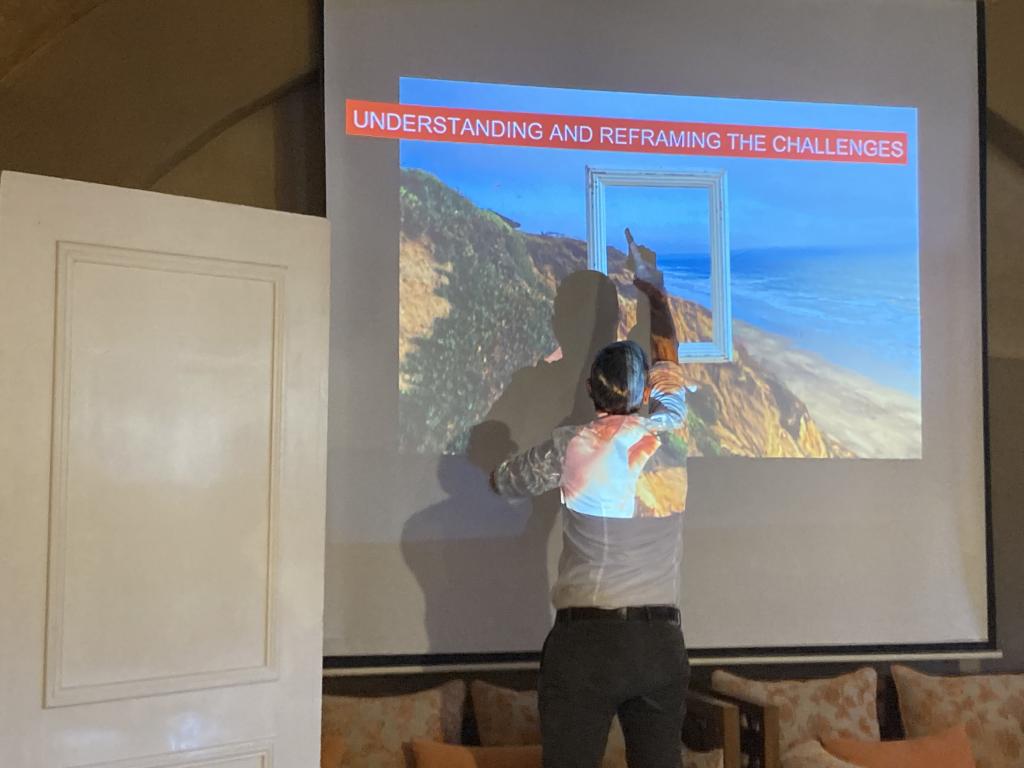MEDWAYCAP first Innovation Camp & Open Exhibition in Tunis: creativity and innovation for the growth of the Med region
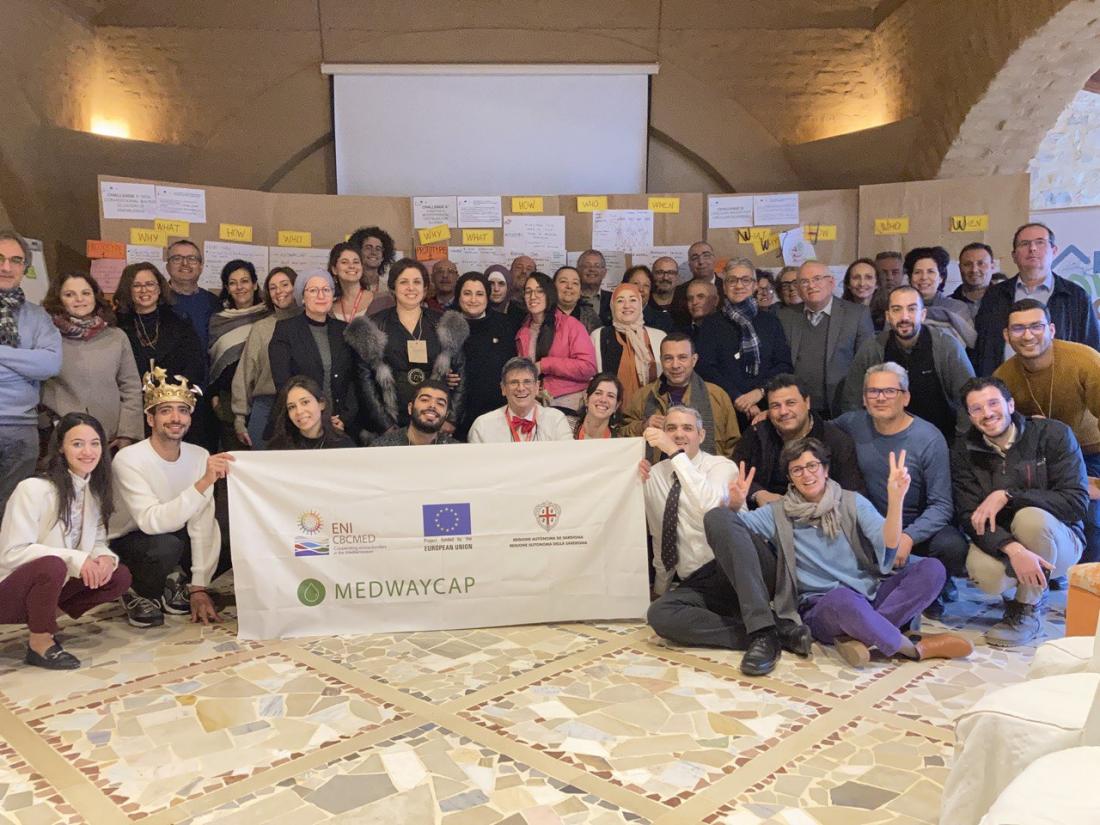
Challenges, sharing ideas, debating and getting involved! This and much more was the first Medwaycap Innovation Camp (IC), held in Tunis on 7-8 February in the evocative setting of Gda Sidi Amour, a true living lab integrating good practices that is crossed by different realities and actors.
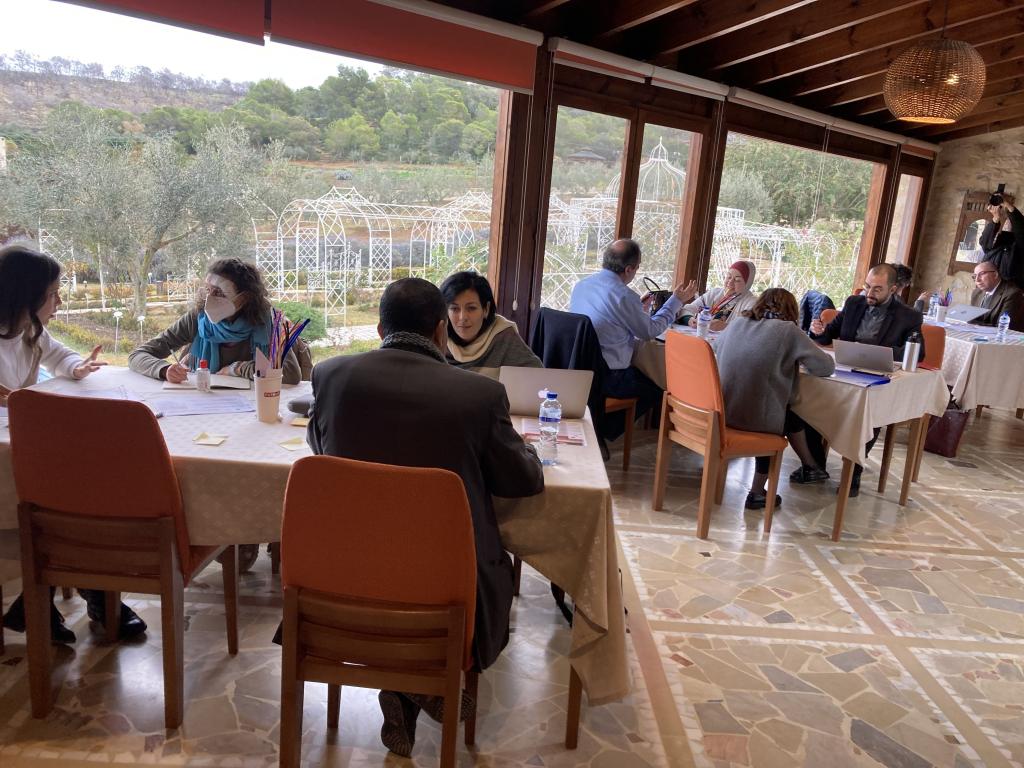
After months of preparation, the first IC finally came to life and was an enriching and fruitful experience. Under the careful guidance of the team of experts of FUTOUR, such as Paolo Martinez, co-editor of the official Joint Research Centre (DG-JRC) guidelines for the IC, precise roles were defined to address three challenges with the contribution of around sixty participants. Among them, multidisciplinary experts from eight Mediterranean countries, as well as many Tunisian attendees, young people, institutional representatives and experts in innovation and economics, data management, and of course water and agriculture.
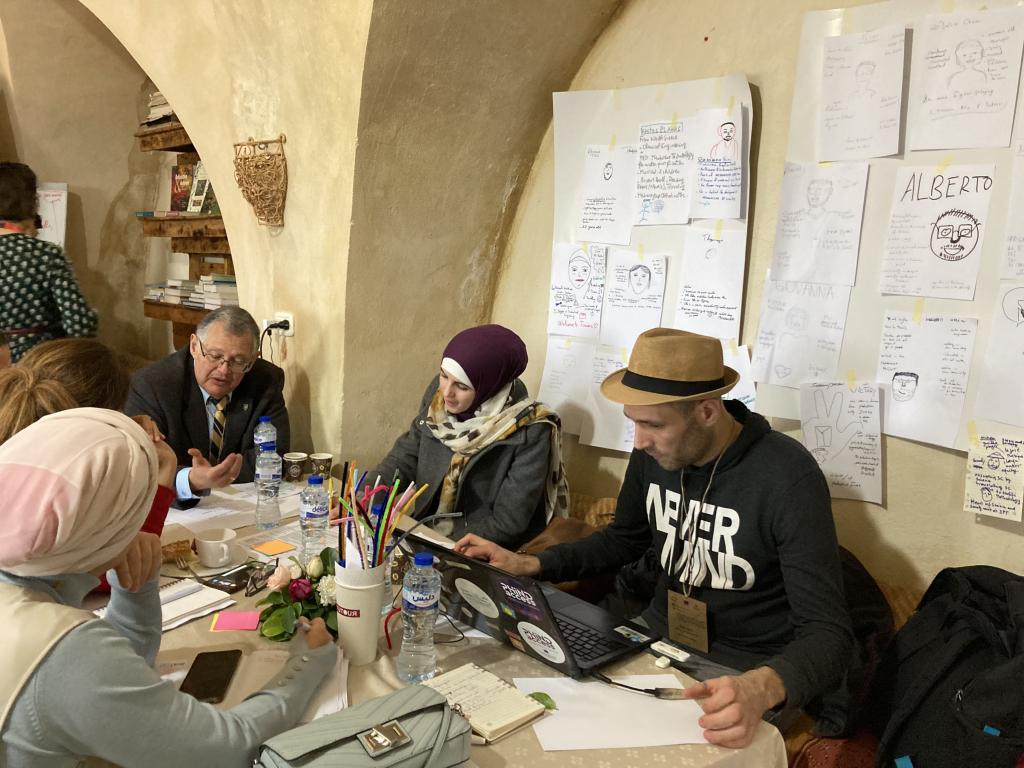
The three challenges identified were “Non-Conventional Water (NCW) Cluster of Knowledge”, “Towards a Mediterranean Capitalisation Alliance” and “Circular Water for Circular Business”, the latter tailored to Tunisia's national needs. Several prototypes have emerged as tangible results of the co-design work. Indeed, many of these can be tested and improved as canvas for new projects for fostering the water reuse.
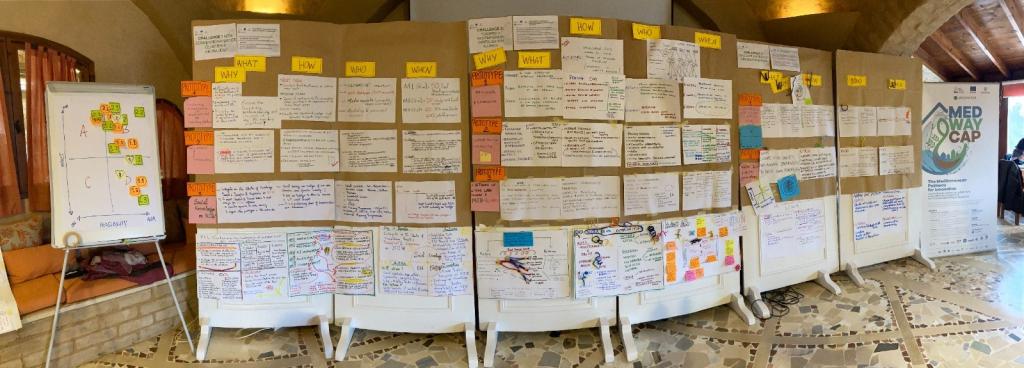
These includes
the creation of a network of Living Labs within the Mediterranean region, imagined as an innovative “space” where different stakeholders can learn how to use and reuse NCW resources from a community perspective, and also to scale up what already exists and support these realities to make them grow and to become self-sustainable
Linked to this, another prototype has emerged about a Water Use Community, a community of people focused on sharing knowledge, developing innovative approaches, mutualising existing tools and raising awareness through an attractive platform. Concerning the construction of Communities of Practices (CoPs), a rather relevant aspect is the dimension of the regional framework. Work has been done on how to make the intergovernmental structure more effective in order to achieve the grassroots dimension of the Mediterranean region. This can be done by clearly establishing roles and responsibilities, by preparing a concrete strategy to do risk assessment, by filling the gaps in the system in order to really push towards water reuse. This prototype will be immediately validated during the next IC.
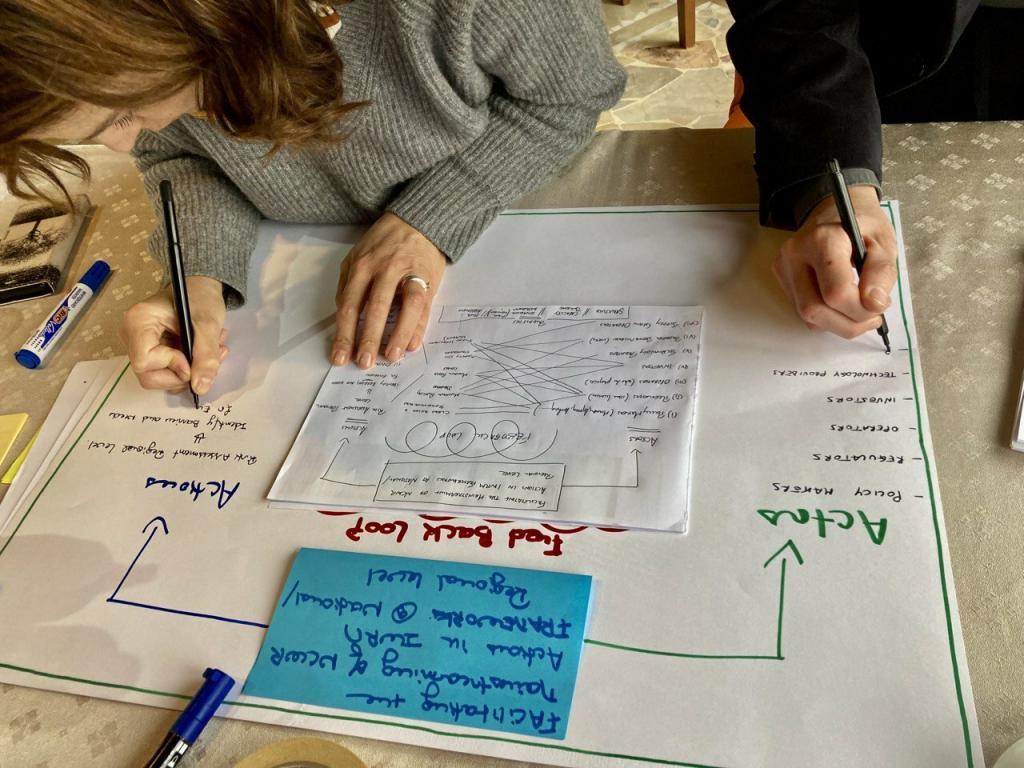
Finally, a tool developed by CERTE in the context of MEDWAYCAP project, which consists of creating a digital platform that collects best practices from different projects. Starting from those present in Medwaycap, the prototype envisages creating a user-friendly, externally financed platform where best practices presented can also pursue a certification through a peer review community. Solutions to integrate the existing knowledge within the society in this process of capitalising on best practices was the subject of another prototype as well as the communication strategy to be undertaken to ensure a Mediterranean impact and the sustainability of the platform.
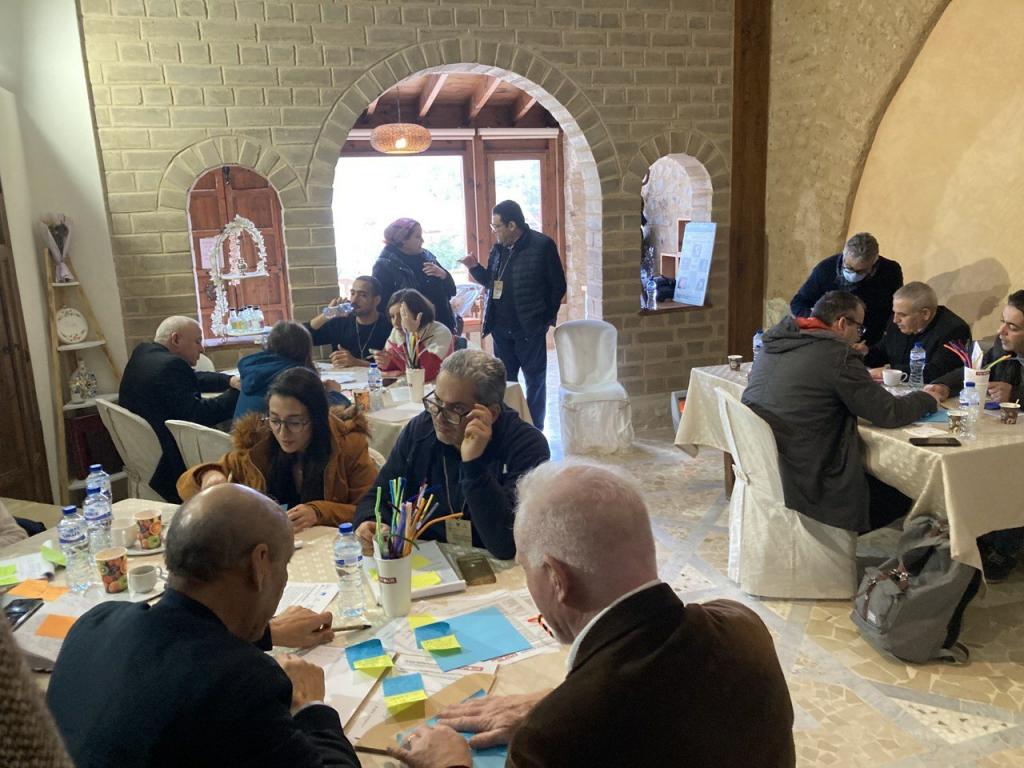
The Innovation Camp has been a new and exciting experience! The magnificent venue in conjunction with the creativity and inspiration of FUTOUR team, helped support the different stakeholders to address the three (3) main challenges of Knowledge harmonization, Mediterranean alliance and Circular economy of MEDWAYCAP project, towards embracing the non-conventional water reuse and management in the Mediterranean region. The desire and ambition to propose solutions/prototypes through dialogue, communication, interaction, brainstorming, capacity building and learning, resulted in an enhanced culture of innovation among the participants, which I hope will be the catalyst to design future policy interventions for promoting the use of NCW resources as a strategic solution to mitigate the water needs in the Med area.
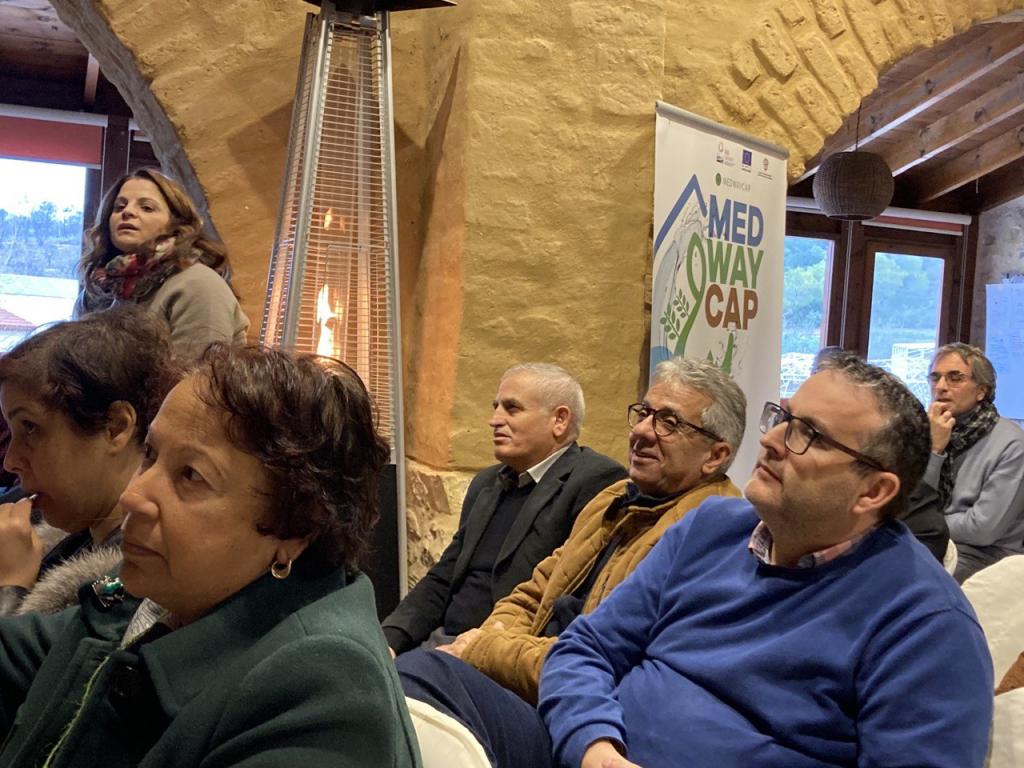
The IC was organised by the International Centre for Advanced Mediterranean Agronomic Studies - Mediterranean Agronomic Institute of Bari- CIHEAM-Bari (Italy), the Centre for Water Research and Technologies – CERTE (Tunisia) and SVI.MED - Euro-Mediterranean Centre for Sustainable Development – SVI.MED. (Italy) under the guide of Futour. It was also an occasion to test and transfer the methodology for future co-designing processes.
In order to transform tensions or problems into solutions, it is necessary to understand and pursue the purpose of the path, to balance the use of methods, the optimisation of spaces and logistics, phases and techniques. Take into account everyone's energy and expectations, as well as their fears and attitudes. Being present, giving reassurance and at the same time knowing that this is an ongoing process in which you have to ask yourself at every moment if something needs to be changed to adapt to the circumstances. Constantly check if the group is comfortable and if the purpose, the motive of the co-creation process is changing. In the MEDWAYCAP path on the reuse of non-conventional waters, a lot of preparatory work with the team of SVIMED, CERTE, CHIEAM-BARI and CEEBA (Confederation of Egyptian European Business Associations) and many others, and a great deal of support, both in identifying the main challenges and in putting the prototypes into practice, was needed to achieve the results that have been reached.
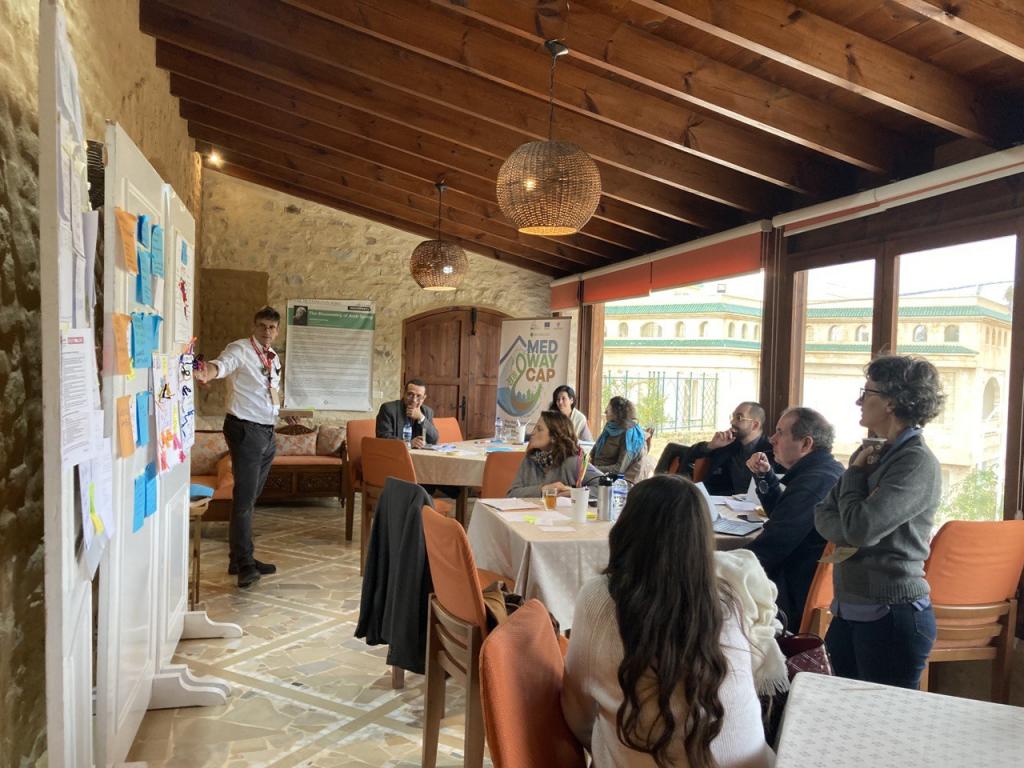
The next event will be in Jordan, where participants will deepen some prototypes. New challenges, contextualised to Jordanian needs, will be introduced.
Finally, alongside the event in Tunisia was the Medwaycap exhibition.
"We are water, even if we are unconventional" is one of the slogans that has emerged from the feedback on the exhibition in Tunis, and it could not have been more appropriate. Sailing across the Mediterranean Sea from Syracuse, it arrived on the other side of this mare nostrum. On 6 February, there was the vernissage at the National Library of Tunisia. The exhibition involves 10 different projects and several good practices on the use of NCWR. It was a renewed opportunity to disseminate best practices and technologies to make more people aware of them through a universal language made up with sensory suggestions and dynamic videos and graphics. Like the IC, also the exhibition is travelling to Jordan next months.
